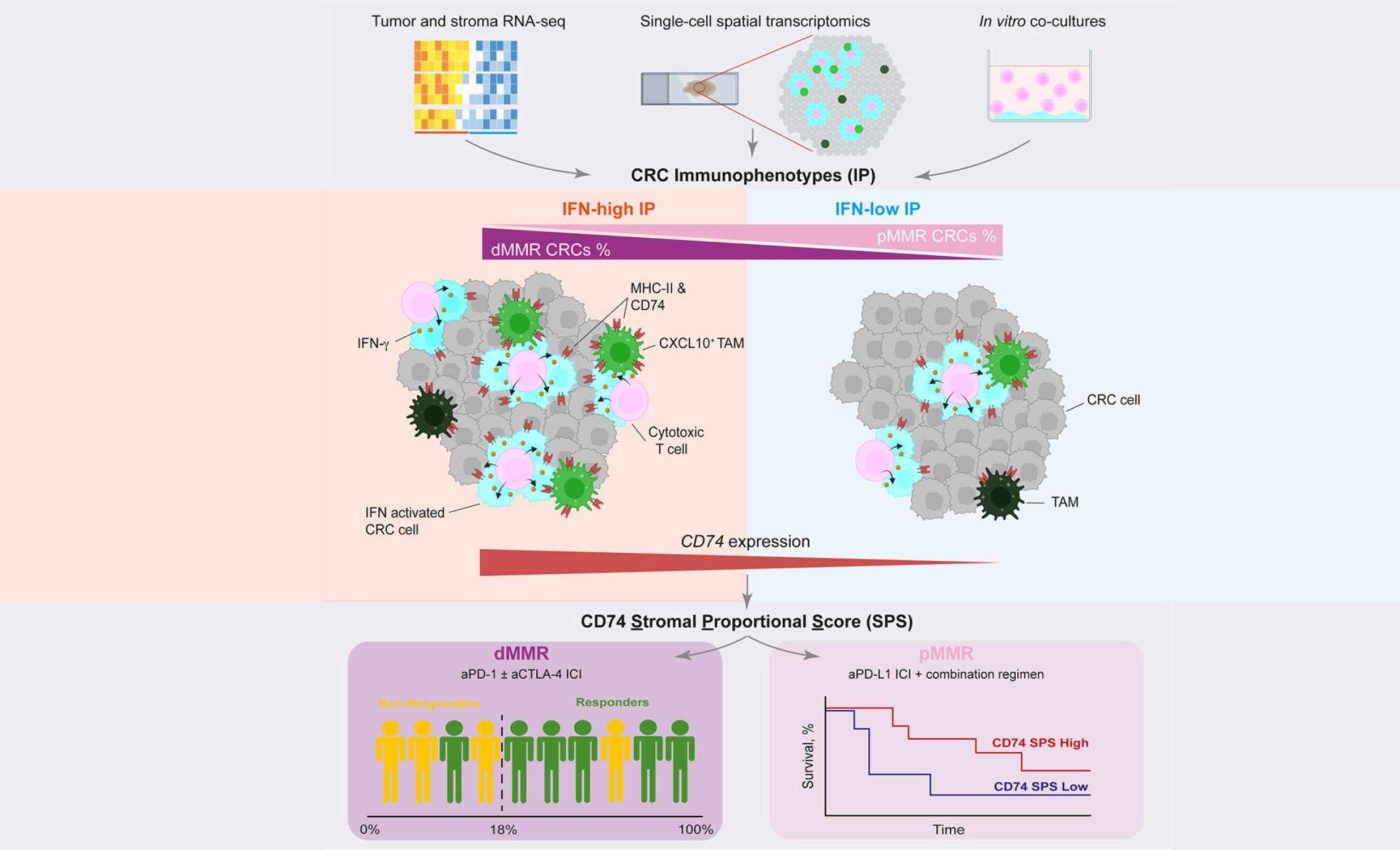
This protein discovery may change the treatment of colon cancer
Bowel cancer affects many individuals and often leads to serious health complications or death. Doctors have been seeking new approaches that can target the disease more precisely, and one recent finding has stirred a lot of interest.
Experts at the Francis Crick Institute and the Barts Cancer Institute in London have identified a protein called CD74 that might show which patients with bowel cancer could respond to certain immune-based treatments.
This finding comes from Professor Francesca Ciccarelli, who leads the Cancer Systems Biology Laboratory at the Crick Institute and teaches Cancer Genomics at the Barts Cancer Institute, Queen Mary University of London.
Understanding bowel cancer
Bowel cancer involves cells in the large intestine that begin to multiply and invade surrounding tissues. These cells sometimes have a faulty DNA repair mechanism, which can make them more sensitive to specific drugs.
Doctors have used immunotherapy to boost a person’s immune cells so that they can fight these tumors more effectively. Some patients see improved outcomes with these treatments. Others show little benefit.
Immune cells linked to treatment
Certain types of white blood cells, including T cells, NK cells, and macrophages, are known to be crucial in guarding the body against threats. They can release chemical signals that push tumors toward a more vulnerable state.
Researchers noticed that, in bowel cancer patients who do well on immunotherapy, these immune cells often gather in key areas near the tumor. That closeness appears to create an environment that allows treatment to work more effectively.
Spotlight on CD74
Scientists have observed that CD74 can help forecast how a tumor might respond to immune-based therapies.
When these critical immune cells are active, they can encourage tumor cells and macrophages to produce more of this protein.
Investigators suspect that, by measuring its levels, doctors may be able to identify patients who are likely to see a benefit from immunotherapy drugs.
“Our work suggests that testing for CD74 levels – which indicate that the immune system is able to fight the tumour – could widen access to immunotherapy. This could revolutionise treatment for a significant fraction of people with the proficient bowel cancer subtype,” stated Professor Ciccarelli.
Why CD74 matters
Researchers have long known that CD74 can trigger survival pathways in certain cells. In healthy tissue, that can help maintain normal function.
Within tumors, though, it may influence how cancer cells interact with the immune system. The more that is understood about how CD74 operates, the more scientists can strategize about effective treatments.
Immunotherapy requires a strong collaboration between cancer cells and the immune system. The presence of CD74 might indicate that the tumor and immune cells are exchanging signals effectively.
This exchange is believed to be part of a chain reaction that encourages a more favorable outcome for some patients.
Implications for future care
“Immunotherapy drugs can be hugely successful for people with bowel cancer, but currently most patients cannot be prescribed these drugs and, even when patients are eligible, we don’t know in advance who will respond,” noted Professor Ciccarelli.
A practical test that measures CD74 might open the door for wider use of immunotherapy in people who were once considered unsuitable. This could spare many individuals the frustration of trying treatments that may not work for them.
It could also invite a more personalized approach, where doctors design a plan guided by each patient’s unique tumor traits.
CD74 and other cancers
Investigators have shown that CD74 can also appear when other types of cancer are present, including those affecting the pancreas and breast tissue.
More studies may reveal whether this protein holds similar value in predicting immunotherapy response for these particular cancers.
Some experts are already exploring whether the link between CD74 and the immune system goes beyond its role in bowel tumors.
If so, future therapies might combine several strategies aimed at boosting immune cell effectiveness while harnessing what this protein tells us about tumor behavior.
Practical steps toward a test
The research team is collaborating with partners to develop a reliable method of detecting CD74 levels in clinical samples.
A simple test would be far easier to adopt than extensive genetic screening or more invasive procedures. This move could fast-track the clinical use of immunotherapy in cases where doctors once dismissed it.
Patients who test for elevated CD74 may soon be candidates for drugs that were never an option before. Those with low levels might be spared unnecessary side effects and directed toward different medical avenues.
What happens next?
Many questions remain about how doctors will incorporate CD74 testing into everyday practice. Specialists anticipate more clinical trials that confirm the reliability and accuracy of this indicator.
Over time, findings from these trials might refine the best ways to use immunotherapy or combine it with other treatments.
Hope is rising that personalized medicine could be closer than once imagined. A single protein test may hold the key to better survival odds and fewer disappointments in the fight against bowel cancer.
The study is published in Cancer Cell.
—–
Like what you read? Subscribe to our newsletter for engaging articles, exclusive content, and the latest updates.
Check us out on EarthSnap, a free app brought to you by Eric Ralls and Earth.com.
—–













